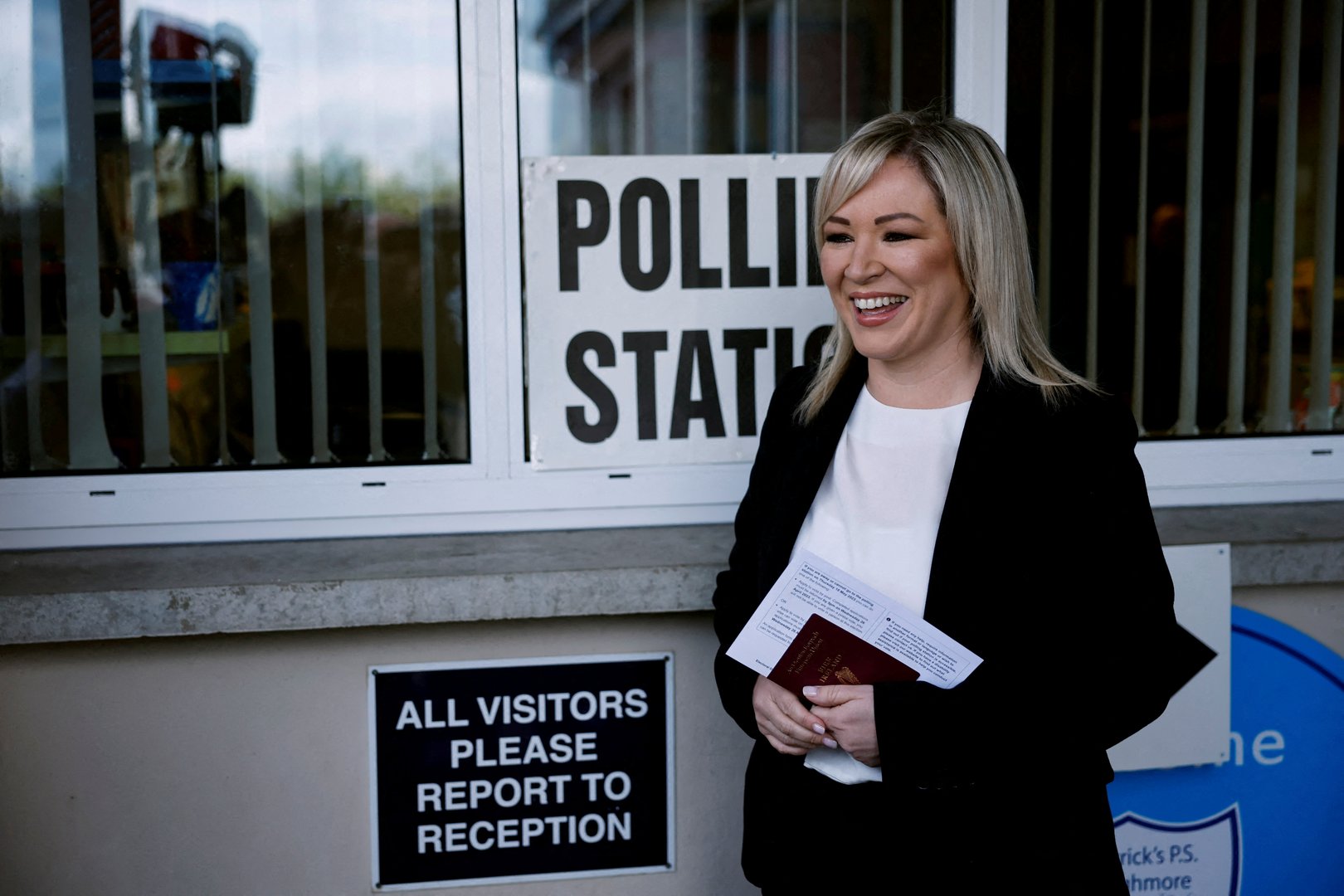History will be made in Ireland when the leader of Sinn Fein in Northern Ireland, Michelle O’Neill, becomes first minister as leader of the largest party in the Northern Ireland Assembly after power sharing resumes following the Democratic Unionist Party’s (DUP) decision last week to take part in the executive government of Northern Ireland.
In a document titled Safeguarding the Union, the UK government sets out how Northern Ireland was secure within the UK internal market system. Goods bound for Northern Ireland would move across as smoothly as anywhere else in UK; EU laws that undermine Northern Ireland’s place in UK would be repealed; and the Northern Ireland Assembly will be able to block new laws from EU institutions, including from the Court of Justice of the EU, that undermine the integrity of the UK.
In particular the UK government persuaded the DUP that changes from the green lane system for goods bound for Northern Ireland to a UK internal market system, and a reaffirmation of UK support for the union justified engaging in power sharing.
For people in Cyprus to get a measure of the historical importance of a Sinn Fein first minister in Northern Ireland, imagine the symbolism of a Turkish Cypriot politician like Mustafa Akinci becoming president of Cyprus and how significant that would be. I would not presume to advise the new UN envoy to Cyprus on where to search for common ground, except to say that the 1998 Good Friday Agreement, as a model on how to blend different stakeholder strands into a comprehensive settlement, repays attention.
The significance of a Sinn Fein first minister in Northern Ireland requires a brief excursion into the history of Ireland last century to learn how historic injustices can be remedied by realism and compromise, from which we can learn by substituting the history of Cyprus for that of Ireland and doing a compare and contrast.
Irish republicanism and Sinn Fein go back to the early 20th century when Ireland was still part of the UK. The British thought they could end clamour for a republic by devolution within the UK under the Government of Ireland Act 1920. The Irish Republican Army (IRA) under the leadership of Sinn Fein, however, had already declared Ireland a republic during the Easter Rising in 1916 that became the Irish war of independence 1919-1921.
The war of independence led to the 1921 Anglo Irish Treaty that created the Irish Free State within the British Commonwealth and gave the six counties in Northern Ireland, where the majority of the population was Protestant, the choice to remain part of the UK. They enthusiastically chose to remain in UK and still support the union.
There then followed a short civil war between factions of the Irish Republican Army that divided between those who backed the Anglo Irish Treaty, Fine Gael, on one side, and those who opposed the treaty, Fianna Fáil and Sinn Fein – the latter was and still is strongly in favour of a United Ireland.
In 1922, Fine Gael and Irish Free State won the day and remained part of the British Commonwealth. Ireland stayed neutral in World War II and became a republic and left the Commonwealth in 1948. The Republic of Ireland remained neutral during the Cold War, stayed out of Nato and is refreshingly neutral in world affairs – most recently they refused to cut aid to UNRWA on the grounds it would be unconscionable and cruel.
The troubles in Northern Ireland that ended with the 1998 Good Friday Agreement began as a civil rights movement in 1968 by the Catholic community who felt discriminated and excluded by the Protestant majority. The situation in the province quickly deteriorated into sectarian violence between Protestants and Catholics even though it was never a religious conflict per se. Rather it was a conflict between unionists, who want to remain part of the UK supported by the British government, and IRA-Sinn Fein, supported by the Irish government, who want a united Ireland. The troubles in Northern Ireland lasted 30 years and cost at least 3,500 lives and a lot of bitterness and mistrust.
The Good Friday Agreement was possible because of a sea change in attitudes on both sides of the Irish Sea. Britain and Ireland were prepared to cooperate as never before, EU freedom of movement between the two Irelands dismantled the hard border between them, and a common British and Irish citizenship in Northern Ireland ironed out problems of identity. Most importantly, Sinn Fein accepted the right of the majority to keep Northern Ireland part of the UK, and unionists accepted that a future majority might vote to unite with Ireland.
The absence of a hard border between Ireland and Northern Ireland worked extremely well so that when Brexit came into prospect all parties in Ireland wanted to retain it. How to avoid a hard border was so crucial that paradoxically it became a treaty provision in the Northern Ireland Protocol attached to the Brexit Withdrawal Agreement even though it was not actually part of the Good Friday Agreement.
Eventually Rishi Sunak renegotiated the Northern Ireland Protocol in March 2023 by persuading EU negotiators to agree the Windsor Framework, which the DUP refined and agreed in a document called Safeguarding the Union.
The point for Cyprus as the new UN envoy does her rounds is we have a lot to learn from the Irish. People round the world love them for a reason.
Alper Ali Riza is a king’s counsel in the UK and a former part time judge






Click here to change your cookie preferences